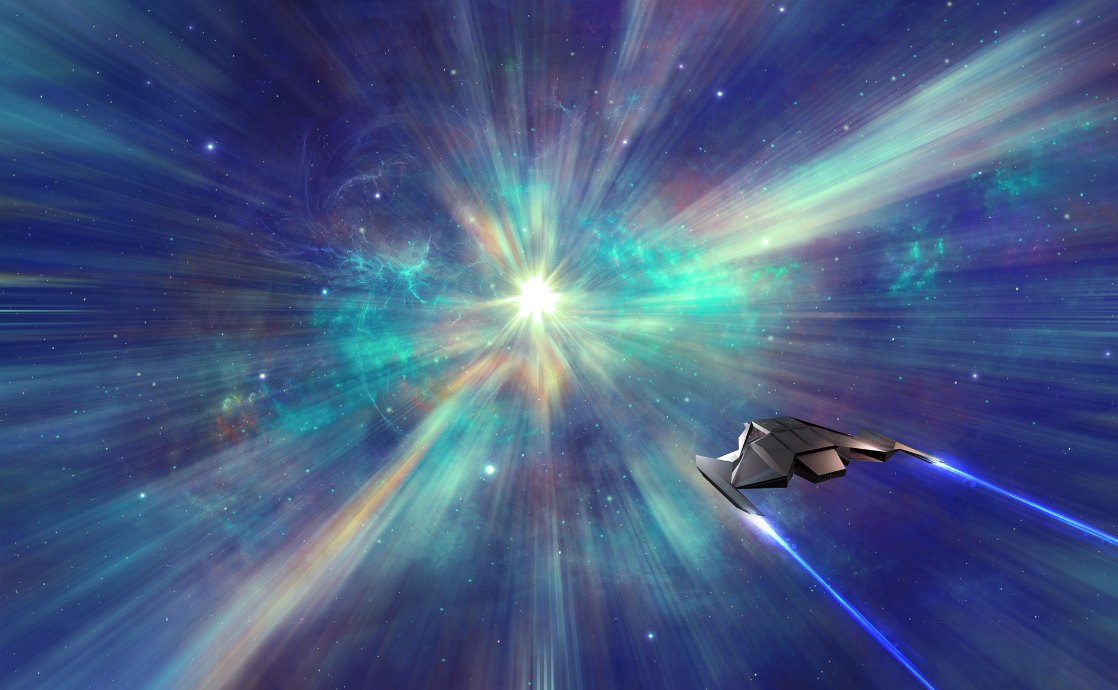The views expressed in our content reflect individual perspectives and do not represent the authoritative views of the Baha'i Faith.
We are all on a spiritual path. For most people in the modern world, spirituality as a whole belongs firmly in the Kung Fu category, leaving out the Star Trek mode of spirituality.
These two shows — Kung Fu and Star Trek — define and put into perspective what the reality of our two-fold spiritual journey actually is.
These are the transcendent lessons of Kung Fu: walking the spiritual path with practical feet; seeking detachment from the baser drives of our animal instincts, like rage, lust, and greed; attempting to bring our higher self into every interaction; and turning to wise teachers to guide us when confronted by tests and difficulties.
RELATED: Rainn Wilson’s New Soul Boom – Why We Need a Spiritual Revolution
But the miracle of Star Trek and why it stands the test of time as a paragon of great television is how it lives on a symbolic level. In Star Trek, everything is a metaphor. (As is everything on this physical plane. Just ask Plato …) The show metaphorically tackled all of society’s greatest challenges — war, racism, technological advancement — from the point of view of an enlightened human race. This wasn’t a show about personal growth; it was a show about collective transformation.
Most don’t actively consider a spiritual path that would focus on service to the greater needs of humanity, even though most spiritual traditions emphasize this idea repeatedly.
For instance, Buddhism is often reduced to “being in the moment” and “releasing attachment” and “eliminating suffering” and other tools that lead toward personal transformation and inner peace.
But remember, Buddhist teachings also refer to building good “karma” by serving others, especially the poor. There are countless stories of the Buddha himself feeding and educating the downtrodden, calling out for service to others, and saying, “So long as the sky and the world exist, my existence will be here for the eradication of the miseries of all beings.” And he sent forth his OG crew of apostle/monks with the following: “Wander forth for the good of the many, for the welfare of the many, in compassion for the world.”
Which sounds suspiciously like writings from the Torah: “Give justice to the weak and the fatherless; maintain the right of the afflicted and the destitute. Rescue the weak and the needy; deliver them from the hand of the wicked.”
And Jesus: “Whoever is generous to the poor lends to the Lord, and He will repay him for his deed.”
And the prophet Mohammed: “The best of you is he who is of most benefit to others.”
Obviously, at first blush, these writings are simply about sacrificing one’s own needs to alleviate the suffering of others. But to what end? Why? Why serve others? To make ourselves feel better? For some personal benefit? Karmic rewards?
No.
Rather it is, with our eyes on a far bigger prize, to create a world filled with less suffering. To create justice, equity, love, and a reduction in unnecessary pain for the inhabitants of our beautiful planet. To build the kingdom of God on Earth.
RELATED: We Are on the Planet for Basically Two Reasons
The founder of the Baha’i Faith, Baha’u’llah, writes, “Let your vision be world embracing rather than confined to your own selves.” And: “All men have been created to carry forward an ever-advancing civilization.”
And to quote that renowned sage science officer Spock, “The needs of the many outweigh the needs of the few.”
And that, dearest reader, is what the Star Trek modality of spiritual growth is all about. What good is a spiritual path that only enriches our own inner peace while hundreds of millions go hungry? And conversely, how do we sustainably serve those millions if our hearts are hard, empty, cold, and filled with selfish ego or materialistic motives? How can there be peace without justice?
There is an ongoing dance, a conversation between the twofold moral paths that lie ahead of us. We seek personal enlightenment so that we can serve more, have an outward orientation, and help create a better world. And when we undertake this service, we are in turn internally awakened and fulfilled to an even greater degree.
This essay is excerpted from Rainn Wilson’s new book Soul Boom: Why We Need a Spiritual Revolution, published on April 25, 2023, used with permission of the publisher, Hachette Book Group, and available here: www.soulboom.com
















Comments
Sign in or create an account
Continue with Googleor